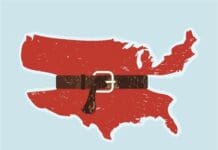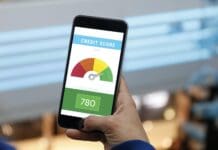New data suggests that the upcoming jobs report may disappoint and be weak, much like last month’s jobs report. A new JPMorgan model — one that was closest when forecasting August’s employment report — suggests that the jobs report for September will weaken in relation to how consumers are spending money. Consumers are spending less money on travel and leisure spending, which could affect hiring and overall jobs data for the month
This JPMorgan data is collected by surveying Chase credit card usage, airport security volumes, and other aspects of consumer behavior. How consumers spend tends to directly affect hirings and overall job reports. For example, the fewer consumers spend or go to businesses, the less hiring will occur (as there isn’t a demand).
If there is large consumer demand, then hirings will continue to increase — or, at least openings will. This new JPMorgan model reveals that consumer spending has decreased, especially in regard to the travel and leisure industries. This data matches up with previous data from the last few months.
Airlines and hotel companies previously told their investors that their third-quarter earnings would likely be less than expected, mainly because of the Delta variant of COVID-19. The Delta variant has caused many consumers to cancel flights. The variant has also caused bookings for many airline and hotel companies to slow down.
The JPMorgan model predicts that the job growth for September will be about 333,000. August’s official job growth was only 235,000 — a huge disappointment for the labor market as a whole. Many hoped that more hirings would occur in September to make up for August’s disappointing numbers, especially because many students returned to school. It is expected that more workers would return to the workforce once school began session for all. However, if this model is correct, then even September would have disappointing numbers.
If this model is correct, then there is always the possibility that more workers will return to the workforce in October. While many schools began the fall semester at the end of August, some other school districts — such as New York City’s — didn’t begin until the middle of September. Therefore, we might not see new hirings increase until October, rather than September.
Job openings hit a record high this summer as employers struggle to find new hires amid a national labor shortage. There are many reasons why workers are not returning to the workforce after mass layoffs in 2020 and early 2021 because of the COVID-19 pandemic. The Delta variant is, unfortunately, still going strong, possibly hindering many people from returning to the workforce.
The Delta variant is also responsible for consumer demand slowing down in the past few months. Lingering COVID-19 concerns may continue to hamper economic growth for the rest of the year. The back-to-school season did quite well for many retail industries. Often, this signals that the winter holiday season at the end of the year will also do well for businesses. However, if the Delta variant continues to cause concerns for consumers, this may affect business and consumer activity.













